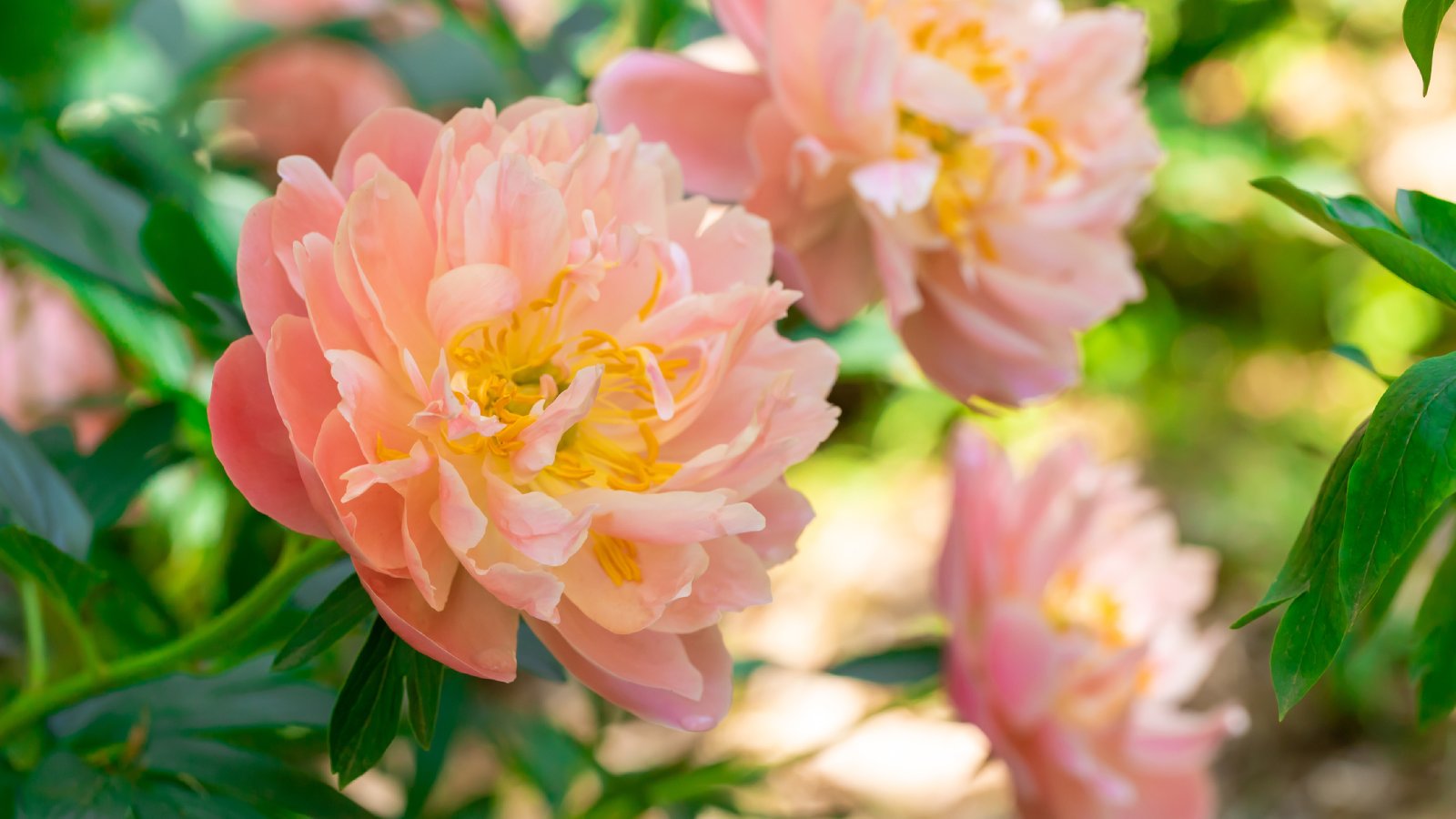How To Fertilize Peonies For Better Blooms
Newly planted peonies benefit from balanced fertilizer applications. Once established, fertilize peonies every three years or so.

Sign up for the Gardening Know How newsletter today and receive a free copy of our e-book "How to Grow Delicious Tomatoes".
You are now subscribed
Your newsletter sign-up was successful
Peonies have incredible wow-power and have long been my favorite garden flower. Big, showy, and spectacular, peonies are a perfect example of flowers that look like they should be difficult to grow – but aren’t! Peony care is actually very simple.
Let me put it this way: you won’t break your budget buying peony fertilizer.
Do Peonies Require Fertilizer?
Some flowering plants need frequent fertilizer to produce flowers. Peonies do not. I always test soil to determine its nutrient content before adding peony fertilizer. Since I make my own compost in the backyard and blend it into my garden beds regularly, I usually do not need fertilizer for peonies.
If you test your soil and it needs nutrients, by all means add them. But if not, don’t. Keep in mind that most fertilizers for peonies and other flowers include a lot of phosphorus (P) that, when not used, builds up in the soil. Sometimes soil contains adequate phosphorus and potassium and you only need to add nitrogen.
When to Fertilize Peonies
If it turns out that your soil is deficient in important nutrients, you face the next question: when to fertilize, spring or fall? The answer is: both.
Generally, if you need peony fertilizer, 3 or 4 ounces of a balanced (1-1-1 ratio) fertilizer per plant will suffice. Apply half of this in autumn, just after you cut back dormant plants to assist the roots to establish. Apply the other half in spring, once new growth appears. This feeds the plants’ vegetative growth.
Well-established peonies don’t need frequent fertilizer application. Start off new plants with rich, composted soil and fertilize in spring and fall for the first few years. At that point, your peonies should only need fertilizer every three years or so, if at all. Adding compost to the soil will help.
Sign up for the Gardening Know How newsletter today and receive a free copy of our e-book "How to Grow Delicious Tomatoes".
Best Fertilizer for Peonies
Don’t waste time looking for a peony-specific fertilizer. Any balanced (1-1-1 ratio) fertilizer is fine.
If your peonies don’t produce buds and flowers, or don’t have very many, the problem could be the fertilizer. Avoid fertilizers with too much nitrogen. This encourages leafy growth and fewer buds.
If you still have trouble with your plants, consider doing a soil test. You can test a sample at your local extension office. They will also offer recommendations on how to amend the soil for better growth and more blooms.
How to Fertilize Peonies
Sprinkle the fertilizer on the soil around each plant, then work it into the soil. Keep peony fertilizer a hand’s length away from the peony crown since crows are extremely vulnerable to fertilizer burn. Instead, apply a band of fertilizer at 8 to 18 inches (20-45 cm) from the plant center.
Once you apply fertilizer, immediately water the area. This dissolves the produce and blends it into the soil. fertilizer and move the nutrients into the soil.

Teo Spengler is a master gardener and a docent at the San Francisco Botanical Garden, where she hosts public tours. She has studied horticulture and written about nature, trees, plants, and gardening for more than two decades, following a career as an attorney and legal writer. Her extended family includes some 30 houseplants and hundreds of outdoor plants, including 250 trees, which are her main passion. Spengler currently splits her life between San Francisco and the French Basque Country, though she was raised in Alaska, giving her experience of gardening in a range of climates.

